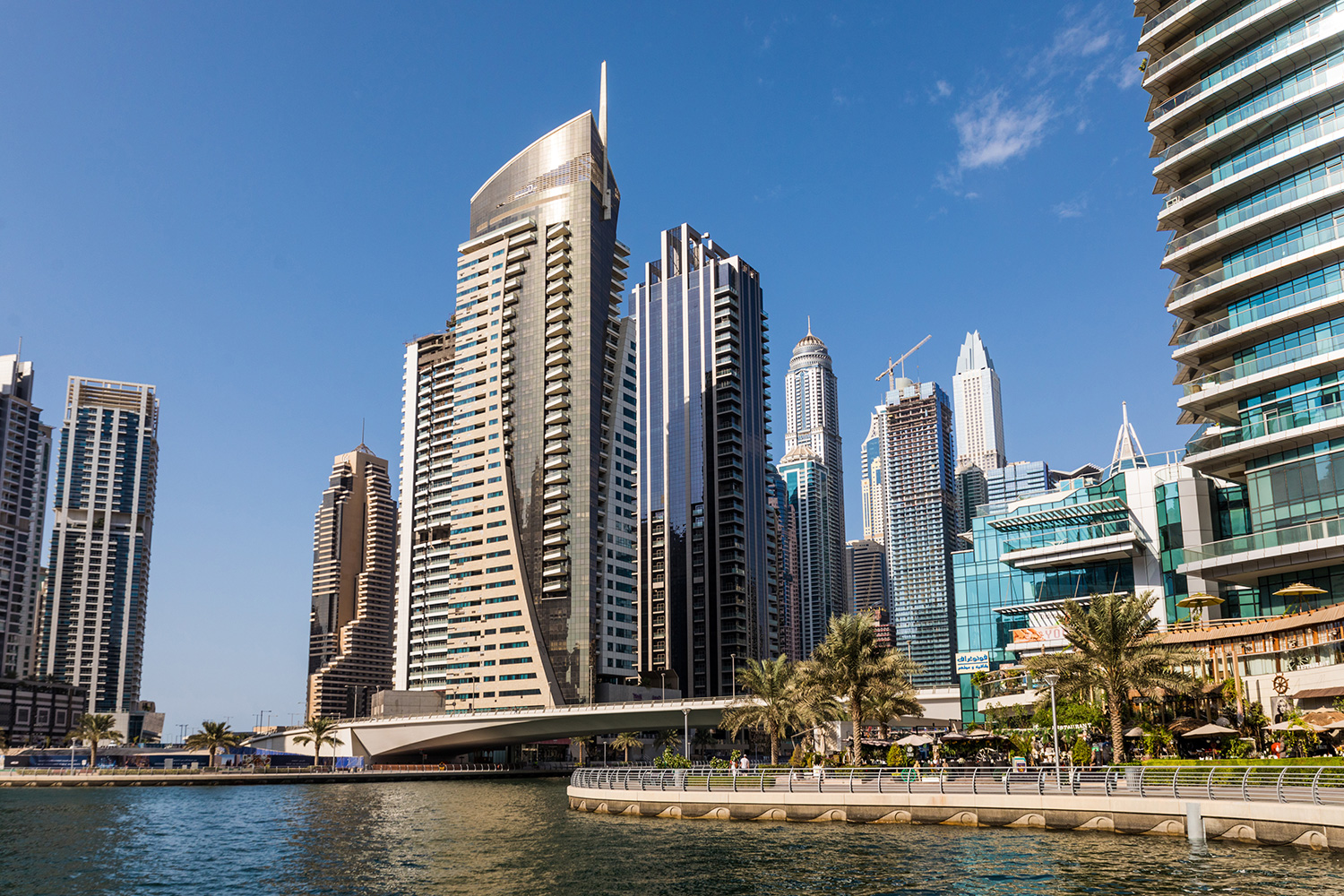Introduction
Dubai is now considered one of the most dynamic business hubs globally. Thanks to its strategic location between East and West, state-of-the-art infrastructure, and business-friendly tax policies, the Emirate provides optimal conditions for entrepreneurs from around the world. Particularly enticing are the tax benefits: no income tax, no corporate tax (except for oil companies and foreign banks), and no withholding tax.
However, the journey to launching your own company in Dubai can be complex. This in-depth guide walks you through the entire business formation process—step by step—from your initial idea to the successful launch of your enterprise in the United Arab Emirates.

Preparation and Planning
Market Analysis and Business Plan
Before you begin with the actual formation process in Dubai, conducting thorough market research is essential. The Arab market differs in many respects from European markets—whether in cultural specifics, consumer behavior, or legal frameworks.
Key factors to include in your market research:
Based on this analysis, you should prepare a detailed business plan. This serves not only as your company’s roadmap but also as a crucial document for potential investors and government authorities.
An effective business plan for Dubai should include:
Budget Planning
The costs of starting a business in Dubai vary greatly depending on the selected business type, location, and industry. Careful budget planning is therefore critical to avoid unwanted surprises.
Important cost categories to account for:
Don’t forget to plan a financial buffer for unexpected expenses. A well-calculated budget helps avoid liquidity issues during the crucial early phase of your business.

Choosing the Right Company Structure and Location
Selecting the appropriate legal structure is one of the most important steps when establishing a business in Dubai. It significantly impacts your business operations, tax obligations, and ownership rights.
LLC – Limited Liability Company
The LLC (Limited Liability Company) is the most common legal form for foreign investors wishing to operate in the mainland (onshore) area of the UAE.
Key Characteristics:
The 51% local ownership requirement may seem problematic for many foreign entrepreneurs. In practice, however, there are legal structures such as “side agreements” that can secure full economic control for the foreign investor. Professional legal consultation is essential.
Free Zone Company
Free zones are special economic areas in the UAE that have their own regulatory authorities and offer specific advantages for foreign investors.
Key Characteristics:
Dubai hosts over 30 specialized free zones, including:
Choosing the right free zone depends on your industry and specific business requirements.
Offshore Company
An offshore company in Dubai is a legal entity registered in the UAE but not permitted to conduct business activities within the UAE.
Key Characteristics:
Offshore companies are especially suitable for international trading firms, holding companies, or managing intellectual property.

Pros and Cons of Each Legal Structure
LLC (Mainland)
Free Zone Company
Offshore Company
Required Documents
Preparing the correct documentation is a crucial step in the business formation process. Depending on your chosen legal structure and industry, additional specific documents may be required.
Application Form
Every company setup begins with the completion of an official application form, which must be submitted to the relevant authority.
The form typically includes:
Important considerations when choosing a company name:
Passport Copies and Personal Documents
All shareholders and managers must submit the following:
Any document not in Arabic or English must be officially translated and legally notarized.
Proof of Funds and Financial Documentation
To demonstrate financial stability, the following documents are typically required:
Note: Free zone companies generally face fewer financial documentation requirements than mainland businesses.

Licensing and Approval Process
Types of Business Licenses in Dubai
There are four main types of business licenses issued in Dubai:
Steps in the Licensing Process
Timeline and Governmental Review
The entire business setup process can take between 1 to 6 weeks, depending on the company structure, industry, and completeness of your documentation:
Government reviews focus on the following:
For sensitive industries like financial services, healthcare, or education, the approval process is typically more rigorous and may take longer.

First Steps After Company Formation
Renting Office Space
After successfully registering your company, setting up a suitable office is an essential next step. In Dubai, you have several options:
Key factors to consider when renting office space in Dubai:
📌 Typical lease agreements in Dubai are for one year and often require upfront payments via post-dated checks.
Opening a Business Bank Account
Opening a corporate bank account is a vital step for your operations in Dubai. The process can take anywhere from 2 to 8 weeks depending on the bank and your company type.
Commonly required documents include:
When choosing a bank, consider:
Popular banks for corporate accounts in Dubai include:
Hiring Staff
Recruiting qualified employees is crucial to your business success in Dubai. As an employer, you must apply for a work visa for each employee.
The hiring process includes:
Recruitment channels in Dubai include:
Important Employment Regulations
Tips for a Successful Business Launch in Dubai

Conclusion
Starting a business in Dubai offers numerous advantages, including a strategic location, modern infrastructure, tax benefits, and access to rapidly growing markets in the Middle East, Africa, and South Asia. With the right planning, the proper choice of legal structure, and professional support, the setup process can be both efficient and seamless.
Key Steps at a Glance:
Dubai continues to refine its business-friendly regulations to attract international investment. Despite the attractive business environment, it’s highly recommended to consult local experts to successfully navigate legal and cultural nuances and avoid potential pitfalls.
Let Experts Support You
Setting up a company in a foreign country can be complex. At Pronex Strategies, we bring in-depth experience and local expertise to guide you through every step of your business setup in Dubai.
Our team can assist you with:
With the right guidance, your business formation in Dubai can become the foundation for international success. The Emirate offers a vibrant environment that fosters innovation and growth—and serves as the perfect launchpad for expansion into neighboring markets.
📩 Contact us today for personalized advice and discover how we can help you establish your business successfully in Dubai.
Email: [email protected]
Germany: +49 911 4777 9422
UAE: +971 56 168 3666
Disclaimer: This article is for informational purposes only and does not constitute legal, tax, or business advice. For personalized consultation, please contact us directly.



